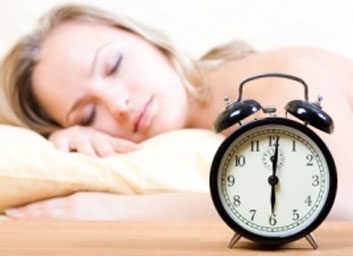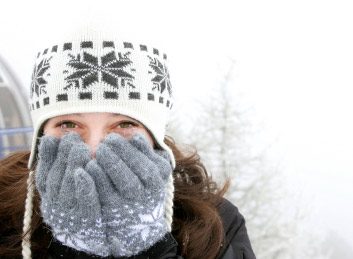
The eye twitch
If you’ve ever experienced an involuntary eye twitch, you know it can be quite annoying-but is it a sign of an underlying health problem? Probably not, says Dr. Mira Acs, an optometrist based in Toronto. “I frequently have patients tell me that their eye has been twitching,” she says. “Most of the time these painless, harmless, unpredictable twitches are an annoyance and nothing else.”
Technically, it’s your eyelid that’s doing the twitching and the proper term for this little quirk is blepharospasm. It’s caused by the part of your brain called the basal ganglion. Though the reason behind these twitches is unknown, doctors do know that it can be aggravated by fatigue, stress, irritation of the inner eyelid, smoking and overconsumption of alcohol and caffeine.
Though blepharospasms are usually harmless, they very rarely act as warning signs of a chronic movement disorder like Tourette Syndrome or Bell’s Palsy. “You should see your optometrist if the twitching is constant for more than two or three weeks, your lid closes completely with the twitch, your face twitches in addition to your eyelids or you have red, swollen or discharging eyes,” Acs advises.

The sleep hangover
Do you ever wake up from a blissfully long sleep on Sunday morning to find that, instead of feeling rested, you have a crushing headache? This may seem like karma paying you back for an overindulgent sleep-in, but it actually has to do with your sleep cycle, says Helen Driver, a Kingston, Ont.-based sleep researcher and president of the Canadian Sleep Society.
Though Driver says the phenomenon isn’t properly documented, she found that when she conducted studies of people who had stayed up for long periods of time trying to break Guinness World Records, the subjects would sometimes wake up from 12- or 14-hour recovery sleep with what she calls a “sleep hangover.” One possible reason: they were waking up from a deep phase of sleep. “Instead of waking from sleep that’s becoming lighter towards the end of a seven or eight hour sleep period, they go back into a cycle of starting deep sleep again,” she explains.
When you’re in a deep phase of sleep, your brain waves get bigger and slow down. When your brain quickly switches from this slow state to the fast and active state of being awake, it may cause a headache.
While these sleep hangovers can certainly put a damper on your brunch plans, there’s really no reason to be concerned about them. “Those headaches normally dissipate after an hour or two,” says Driver.

Jumpy legs
If you can’t seem to keep your legs still, you may have restless legs syndrome– a condition that ranges from a creepy-crawly sensation that runs up and down your legs to quivers, jerks, pins and needles, numbness, pain or a burning sensation. It affects millions of individuals every day, and their chief complaint is difficulty falling asleep-and staying asleep. That’s because that is when these sensations typically occur. And unfortunately, many people who have RLS also have trouble controlling sudden limb movements, which can occur every 20 to 30 seconds all night long-a major sleep disruptor.
Twenty percent of pregnant women also suffer from RLS. If you’re expecting, “delivery is the real remedy,” says Grace Pien, M.D., a sleep researcher at the University of Pennsylvania’s Center for Sleep and Respiratory Neurobiology.
No bun in the oven? Try taking a walk before bed, warming up your legs with a heat pack and avoiding antihistamines, which make restless legs even worse.
– Adapted from the book Sleep to Be Sexy, Smart and Slim, available now in the Best Health Store

Itches
Itches seem to happen at the most inopportune times, don’t they? And nobody really knows why spontaneous itches occur, says Dr. Peter Vignjevic, a dermatologist based in Hamilton, Ont. However, we do know why scratching relieves the sensation. “When we scratch, it stimulates sensory nerve endings, overpowering the input to our brain from the itch receptors or nerves in the skin, so the brain perceives the scratching and not the itch,” Vignjevic explains.
Persistent itchiness is most likely a sign that you’re suffering from dry or irritated skin (an all too common ailment during Canadian winters). Avoid scratching yourself raw by applying moisturizer or a cold compress or by taking lukewarm baths to soothe the skin.
If you’re experiencing a whole-body itch that interferes with your sleep or persists for more than one week, it’s time to seek medical help, advises Vignjevic. Itching that’s accompanied by a fever, night sweats, weight-loss, swelling or jaundiced (yellow-tinged) skin should also be seen by a doctor immediately.
Related:
• 5 habits you thought were healthy but aren’t
• Is your computer damaging your eyes?
• 5 strange-but-true health cures

Get healthy with food
Find out how you can heal yourself with food in Food Cures, available now in the Best Health Store.
